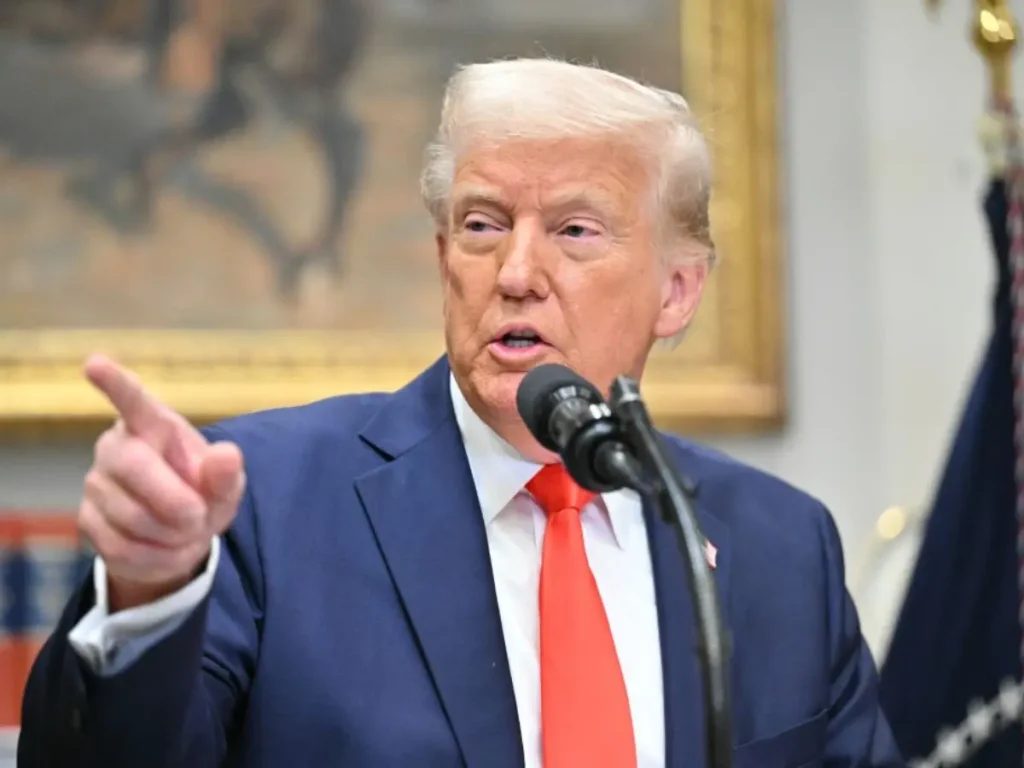Listen to the article
BBC Under Fire for Alleged Misleading Edits of Trump Speech
The British government has described allegations that the BBC edited video clips of former US President Donald Trump in a documentary as “incredibly serious,” with the broadcaster’s chairman expected to issue an apology amid mounting criticism.
Culture, Media and Sport Minister Lisa Nandy emphasized on Sunday that the matter demands a clear explanation from the public broadcaster. The controversy centers on a Panorama documentary titled “Trump: A Second Chance?” that aired shortly before the 2022 US presidential election.
“The BBC chairman will provide a full response to the Culture, Media and Sport Committee on Monday,” a spokesperson for the broadcaster confirmed, as Chairman Samir Shah prepares to face parliamentary scrutiny over the incident.
The White House has launched a scathing attack on the BBC, with Press Secretary Karoline Leavitt accusing the organization of spreading “fake news” and labeling it a “leftist propaganda machine.” In comments to The Telegraph, Leavitt further criticized the broadcaster for being “purposefully dishonest.”
At the heart of the controversy is the selective editing of a speech delivered by Trump prior to the January 6, 2021, Capitol riots. The edited version broadcast on Panorama appeared to suggest Trump told supporters he would accompany them to the US Capitol and “fight like hell.” However, the unedited footage reveals Trump actually urged the crowd to join him in “cheering on our brave senators and congressmen and women” as they contested Joe Biden’s election victory.
This incident comes at a particularly sensitive time for UK-US relations, with Trump returning to the White House and the BBC already facing scrutiny over its editorial standards.
Minister Nandy noted that the Trump footage represents just one of several concerns about potential bias at the public broadcaster. “It isn’t just about the Panorama programme, although that is incredibly serious,” she told BBC television. “There are a series of very serious allegations made, the most serious of which is that there is systemic bias in the way that difficult issues are reported at the BBC.”
The minister highlighted what she described as “entirely inconsistent” editorial standards and language in BBC reporting across various contentious topics, including “Israel, Gaza… trans people or on this issue about President Trump.”
This latest controversy follows several other recent editorial missteps by the BBC. Earlier this year, the broadcaster issued multiple apologies for what it acknowledged were “serious flaws” in another documentary, “Gaza: How To Survive A Warzone,” which aired in February.
In October, the UK media regulator sanctioned the BBC for producing a “materially misleading” program whose child narrator was later revealed to be the son of Hamas’s former deputy minister of agriculture – a significant disclosure that was not made clear to viewers.
The accumulation of these incidents has intensified scrutiny of the BBC’s editorial processes, particularly regarding politically sensitive content. As a publicly funded broadcaster with a global reputation for journalistic integrity, the BBC faces particular pressure to maintain impartiality in its reporting.
Media analysts suggest these controversies come at a challenging time for traditional news organizations worldwide, as they navigate increasingly polarized political environments while facing competition from less regulated digital platforms.
The outcome of Shah’s appearance before the parliamentary committee will likely have significant implications for the BBC’s reputation and could potentially lead to calls for stronger oversight of its editorial practices, especially as the organization prepares to navigate coverage of a second Trump administration.
Fact Checker
Verify the accuracy of this article using The Disinformation Commission analysis and real-time sources.




6 Comments
The mining and energy sectors will be closely watching this story, as the media’s credibility is critical for reporting on these important industries. Objective, fact-based journalism is essential.
Allegations of ‘fake news’ and ‘purposefully dishonest’ reporting are serious. The BBC needs to provide a convincing explanation to regain public trust.
Interesting allegations against the BBC. Selective editing is a serious issue that can undermine public trust in media. Looking forward to seeing the broadcaster’s full response and explanation.
The White House’s strong criticism of the BBC as a ‘leftist propaganda machine’ seems quite a partisan take. Hopefully the facts will come out in the parliamentary scrutiny.
This controversy over alleged video editing raises important questions about media bias and transparency. It’s crucial that news organizations maintain high standards of accuracy and fairness.
I’m curious to learn more details about the specific edits that were made and the context around them. A thorough investigation is warranted here.